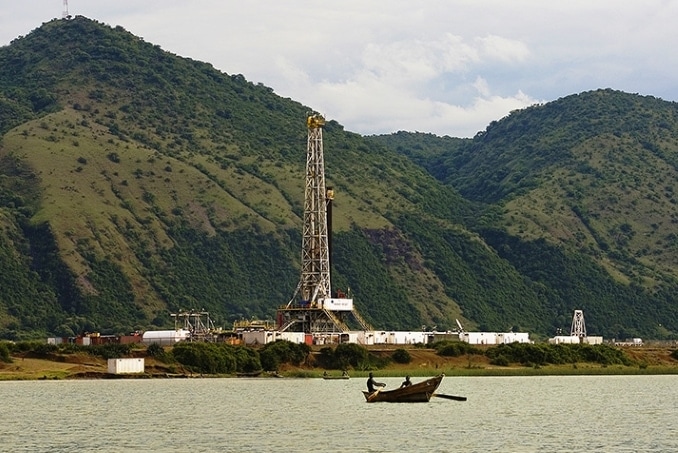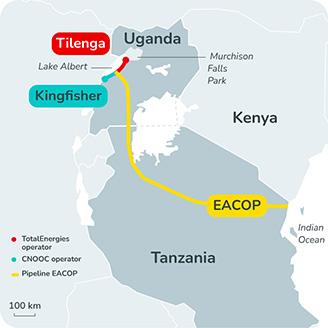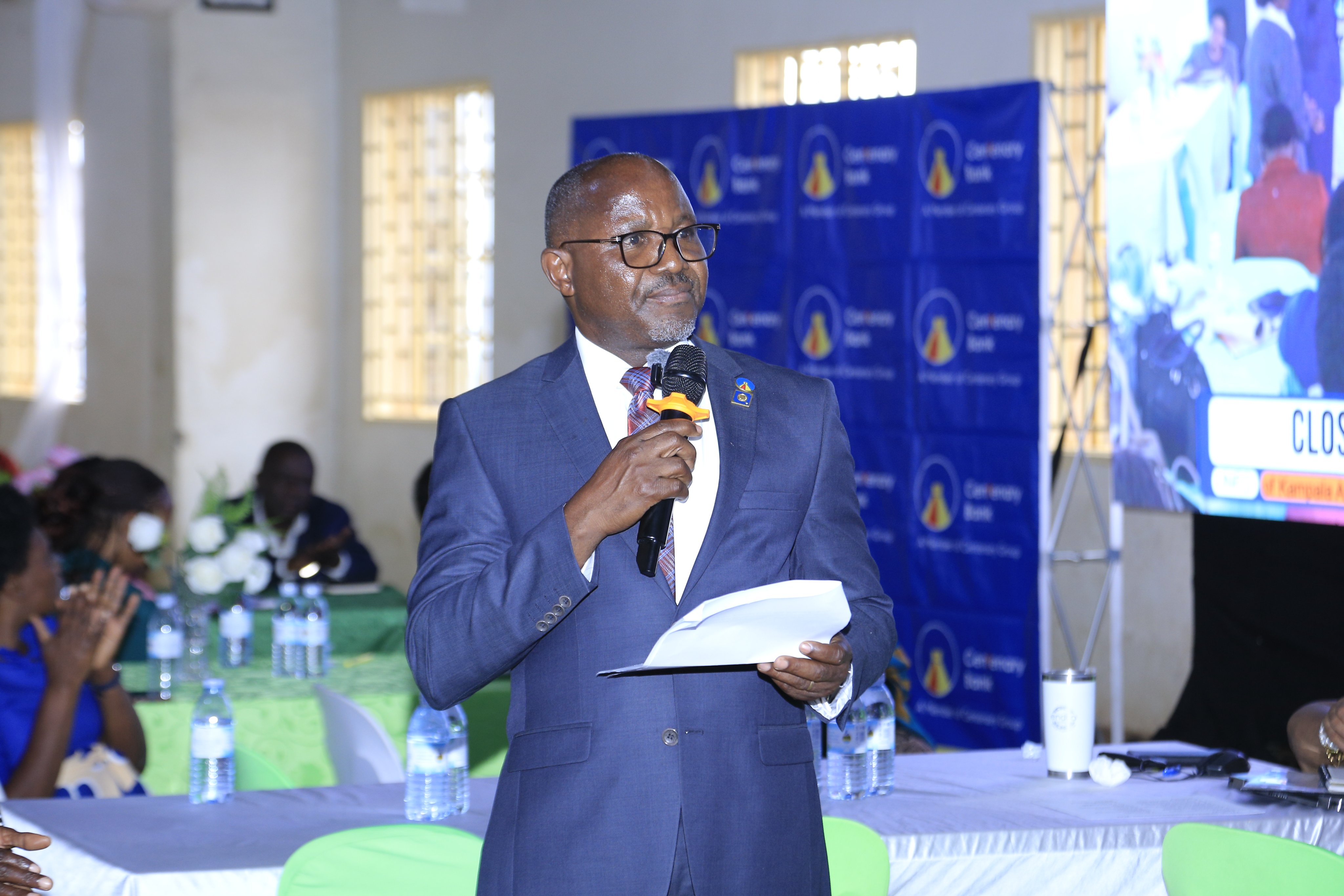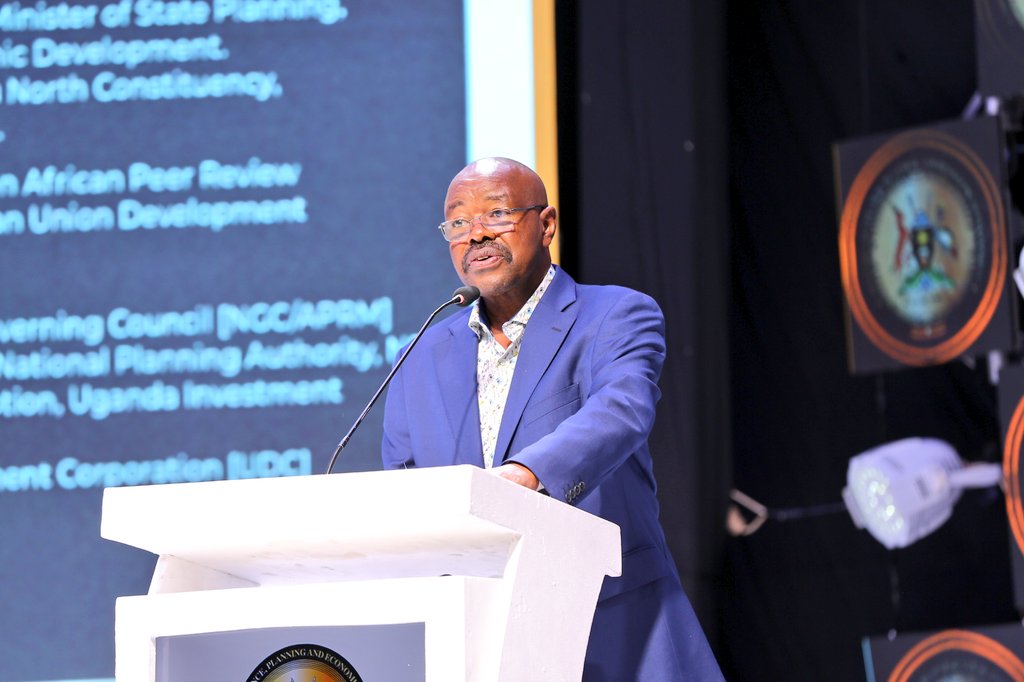Stop ongoing oil activities within Ramsar sites
TotalEnergies, CNOOC and the Uganda government intend to develop infrastructure such as 34 well pads, a water abstraction station on the shores of Lake Albert.

By Olive Atuhaire
It is noted that French oil giant, TotalEnergies E&P started carrying out oil drilling activities on July 19, 2023, in one of the 130 oil wells within Murchison Falls National Park which is one of Uganda’s oldest, largest and most visited parks.
The park is a sanctuary of global significance recognized for its irreplaceable biodiversity and unparalleled natural beauty. The park is home to over 70 species of mammals including elephants, lions, giraffes and over 450 bird species, making it a remarkable and unique, irreplaceable ecosystem.
It is worth noting that the Tilenga, Kingfisher and East African crude Oil Pipeline (EACOP) oil projects are or will negatively impact nearly 2, 000 square kilometres of protected wildlife habitats not to mention the International Union for Conservation for Nature (IUCN) listed endangered species.
TotalEnergies, CNOOC and the Uganda government intend to develop infrastructure such as 34 well pads, a water abstraction station on the shores of Lake Albert, a Central Processing Facility (CPF), roads and water injection lines to transport water from the CPF to the well pads for re-injection and various oil pipelines.
Sadly, one of the pipelines set to be constructed is known as the Victoria Nile crossing which will be buried under the River Nile and is of importance as per the Tilenga oil project’s Environmental and Social Impact Assessment (ESIA) report.
According to the Tilenga ESIA report, “The HDD [Horizontal Directional Drilling] Construction Area north of the Nile and pipe stringing area will be located within the boundary of the Murchison Fall Albert Delta Wetland System Ramsar site.
Further, the majority of the people living around Lake Albert survive through fishing. It is worth noting that the Murchison Falls Albert Delta Wetland System is a spawning ground for Lake Albert fisheries and provides a wetland habitat for biodiversity during the dry seasons.
It is also an area of high species diversity and endemism making it a critical area for wildlife at the regional scale. Therefore, oil activities including but not limited to oil drilling, could lead to negative consequences for biodiversity and ecosystem services if oil spills occur hence affecting the biodiversity of freshwaters for fish populations within Lake Albert.
According to data from AkokoInsigh in 2018/2019, the fishing industry contributed $703.7 million to the country’s economy, representing close to 1.5% of GDP. The Uganda Bureau of Statistics (UBOS) reported that Lake Albert contributed 43% of Uganda’s fish catch. According to figures from the Bank of Uganda, Uganda exported fish worth $ 171 million (Shs635 billion) within the same year.
Furthermore, according to data from the Economic Policy Research Centre, the Ugandan fisheries sub-sector already employs 1.7 million people directly, and over 3.5 million people indirectly.
There are other threats to other Ramsar wetlands like the planned development of the East African Crude Oil Pipeline (EACOP) project through the Lake Victoria basin, River Kafu, River Katonga, River Nakabazi and impacts on the Wambabya as well as forest reserves like Bugoma and Budongo forest reserves among others.
Lake Victoria is home to Ramsar wetlands like Lutembe Bay, Mabamba Bay Wetland System, Nabajjuzi Wetland System, Sango Bay, Musambwa and Island-Kagera Wetland.
It is noted that since August 2022, residents of Buliisa district have been facing flooding due to the ongoing oil activities in the Tilenga Central Processing Facility (CPF) area which hosts several swamps per information from communities and travel through several villages including Kasenyi in Buliisa district.
As if that’s not enough, for the past two years, the communities have been facing severe problems caused by the invasion of elephants from the Murchison Falls National Park into their villages resulting in the loss of human lives and significant damage to several hectares of cassava, maize, beans, sweet potatoes, jack fruits, paw paws and bananas.
This is due to the ongoing oil exploitation activities within MFNP that drive the animals out of the park into the communities in search of food and a place close to their natural habitat.
I therefore call upon the Secretary General of the Ramsar Convention on Wetlands of International Importance to engage the Ugandan government, Total Energies E&P and CNOOC to stop dangerous ongoing destructive oil and gas exploitation activities in protected and other critical conservation areas such as wetlands and national parks, in particular, Murchison Falls National Park.
If oil drilling activities continue and the EACOP constructed, it will affect wetlands connected to Ramsar sites. The sites will be degraded to the detriment of communities that rely on them.
Olive Atuhaire, Kampala
Email: atuhaireolivia72.ao@gmail.com







